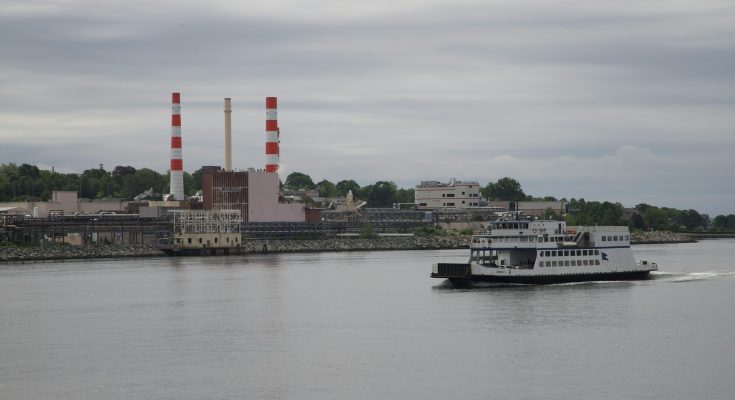Saint John (N.B.)/CMEDIA: Following reportedly the federal government cutting ferry fares this summer to half , ferries in Atlantic Canada are seeing an increase in passengers and bookings.
“I’ve noticed (a) significant increase in ferry traffic…people coming over here from Nova Scotia, specifically, just to visit us because we have a lot of fans on that side,” said Curtis Dionne, who co-owns Glass Roots, a glassblowing studio and gallery in Uptown Saint John, N.B.
A 34 percent jump in passenger and 39 percent jump in vehicle traffic travelling between Saint John and Digby, N.S. was seen between Aug. 1 and Sept. 25 this year by Bay Ferries compared to last year.
Keeping with his election promise to cut ferry fares on federally supported ferries in Atlantic Canada by half, Mark Carney dropped on July 28 bridge tolls on Prince Edward Island’s Confederation Bridge from just over $50 to $20.
Although Carney estimated the move would cost about $100 million dollars each year, he said it’s expected to see an increase in traffic.
Having noticed the difference, William McCormick, a councillor in Digby, said although it’s usually busy in summer, but even now, he’s noticed a lot of traffic — license plates from New Brunswick, Ontario, Quebec and the U.S. state of Maine.
“It’s definitely been busier in the town than what it would normally be with, with ferry traffic,” he said. “I think it’s fantastic. It’s great to have more people passing through the town.”
A spike in bookings, particularly for future travel, has been seen by Marine Atlantic, which operates ferries between Nova Scotia and Newfoundland.
Darrell Mercer, the corporate communications manager at Marine Atlantic, said of the 50,000 passengers currently booked to travel, about 38,000 new bookings have been made since Aug. 1 said that Marine Atlantic faced capacity challenges this season because of Canadians’ desire to travel within Canada.
The data published by Tourism PEI, said that the vehicle traffic went up 25 percent across the Confederation Bridge and on the ferry to P.E.I. in Aug.
Frédéric Gionet, the Canadian Federation of Independent’s director of legislative affairs for the Atlantic region, said despite the economic conditions, more people are going on more day trips to the island.
“It’s easier to do business. And you think of P.E.I as closer to the rest of the mainland. And that was the objective,” he said.
Flavio Nienow, a communications advisor with Transport Canada, said the new fares for Eastern Canada, including Marine Atlantic, are expected to remain in place until at least 2029 and the tolls for the Confederation Bridge are expected to remain in place until at least 2032.
He added that the fare reductions will help build a stronger economy by reducing barriers to interprovincial trade.





